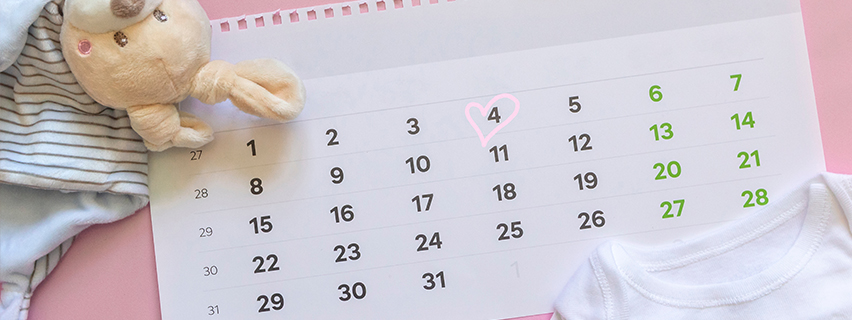A Guide to Every Stage: Your Essential Week-by-Week Pregnancy Calendar
Are you eagerly anticipating the arrival of your little one? Congratulations!
Pregnancy is a remarkable journey filled with transformative changes, both physical and emotional. As you embark on this extraordinary path, having a week-by-week pregnancy calendar can be an invaluable resource. From the early days of conception to the exhilarating moment of birth, this comprehensive guide will take you through every stage, providing essential insights and information along the way. Get ready to delve into the incredible world of pregnancy as we navigate through each week, offering a glimpse into the wonders unfolding within your body and the milestones your baby will reach. Whether you’re a first-time parent or a seasoned pro, this guide will serve as your trusted companion, providing guidance, support, and a wealth of knowledge as you embrace the miracle of creating new life. So, let’s embark on this joyous journey together and explore your week-by-week pregnancy calendar!
Week-by-Week Pregnancy Calendar
Week 1-5: Conception occurs, and the fertilized egg implants in the uterine lining. The embryo develops facial features, limb buds, and a circulatory system. The heart starts beating.
Week 6-10: The embryo transitions into a fetus with major organs formed. Limbs elongate, fingers and toes develop, and facial features refine. Gender can be determined.
Week 11-15: The fetus grows rapidly, with developing hair follicles and tooth buds. Movements become coordinated, and organs mature. Gender may still be developing.
Week 16-20: The fetus gains weight, facial features become distinct, and the skin becomes opaque. The heart beats strongly, and fat stores develop.
Week 21-25: Facial features refine, and the fetus can swallow amniotic fluid. The lungs and senses continue to develop. Movements become more pronounced.
Week 26-30: The fetus’s eyes open, and lung maturation progresses. Brain development continues, taste buds form and the baby’s kicks become stronger.
Week 31-34: Growth slows, bones form, and the fetus settles into a head-down position. Sleep patterns develop, and the central nervous system matures.
Week 35-39: The fetus gains weight, lungs mature, and discomfort increases. The baby engages in the pelvis, and signs of labour may appear.
As you approach the final weeks of your pregnancy, stay in close contact with your healthcare provider and prepare for the beautiful moment of meeting your little one.

Pregnancy weeks to months
Pregnancy is typically measured in weeks, but it can also be expressed in months for easier understanding. Here is a general breakdown of pregnancy weeks to months:
1-4 weeks: First month of pregnancy
5-8 weeks: Second month of pregnancy
9-12 weeks: Third month of pregnancy
13-16 weeks: Fourth month of pregnancy
17-20 weeks: Fifth month of pregnancy
21-24 weeks: Sixth month of pregnancy
25-28 weeks: Seventh month of pregnancy
29-32 weeks: Eighth month of pregnancy
33-36 weeks: Ninth month of pregnancy
37-40+ weeks: Full-term pregnancy
Please note that pregnancy months can vary slightly as each month does not consist of exactly four weeks. Also, it’s important to keep in mind that pregnancy is typically considered to be around 40 weeks in duration, counting from the first day of the woman’s last menstrual period.
Body changes during pregnancy week by week
Week 1-5: During this period, hormonal changes occur, and the uterus starts to prepare for pregnancy. Some women may experience fatigue, breast tenderness, and mild bloating.
Week 6-10: The uterus expands, and the waistline thickens. Morning sickness and food aversions may begin. Breast size and sensitivity increase, and veins may become more visible. Fatigue and mood swings are common.
Week 11-15: The baby bump starts to become more noticeable as the uterus continues to grow. The breasts may continue to enlarge, and the nipples may darken. Skin changes, such as acne or a pregnancy “glow,” may occur. Constipation and heartburn may develop.
Week 16-20: The abdomen expands significantly as the baby grows. The belly button may start to protrude. Stretch marks may appear on the belly, breasts, thighs, or buttocks. Blood volume increases, causing the skin to look flushed. The hormone relaxin loosens joints and ligaments.
Week 21-25: The belly continues to grow, and the weight gain becomes more evident. Some women may experience backaches and abdominal discomfort. Swelling in the feet and ankles, known as edema, may occur. The areolas may darken further.
Week 26-30: The abdomen continues to expand, and the belly button may protrude more prominently. Varicose veins and haemorrhoids may develop due to increased blood flow and pressure. Shortness of breath and indigestion may occur as the growing uterus pushes against the diaphragm and stomach.
Week 31-35: The baby bump is large and noticeable, and the skin may feel tight and itchy. Contractions may become more frequent. Swelling in the hands, face, and legs may occur. The breasts may start producing colostrum, a precursor to breast milk.
Week 36-40+: The baby drops lower into the pelvis as labour approaches. The abdomen may feel heavy and uncomfortable. Contractions may intensify. The cervix may start to dilate and efface in preparation for birth. Increased pelvic pressure and more frequent urination are common.
It’s important to remember that every pregnancy is unique, and individual experiences may vary. It’s always advisable to consult with a healthcare provider for personalized information and guidance during pregnancy.
Frequently Asked Questions (FAQs) about Pregnancy and Body Changes:
Q1. What happens at 7 weeks of pregnancy?
At 7 weeks of pregnancy, the baby’s major organs, including the brain, heart, and limbs, are forming. The embryo is about the size of a blueberry. The mother may experience symptoms such as nausea, fatigue, breast tenderness, and increased urination.
Q2. What are the symptoms of pregnancy week to week?
Pregnancy symptoms can vary from woman to woman and week to week. Common symptoms include fatigue, nausea or morning sickness, breast changes, frequent urination, food cravings or aversions, mood swings, and mild abdominal cramping. It’s important to note that not all women experience the same symptoms, and the intensity can differ.
Q3. How to calculate how many weeks of pregnancy?
To calculate the number of weeks of pregnancy, you can start by determining the first day of your last menstrual period (LMP). Count the number of weeks from that day to the present date. You can also use an online pregnancy calculator or consult with your healthcare provider for more accurate calculations based on your individual circumstances.











































Leave a comment